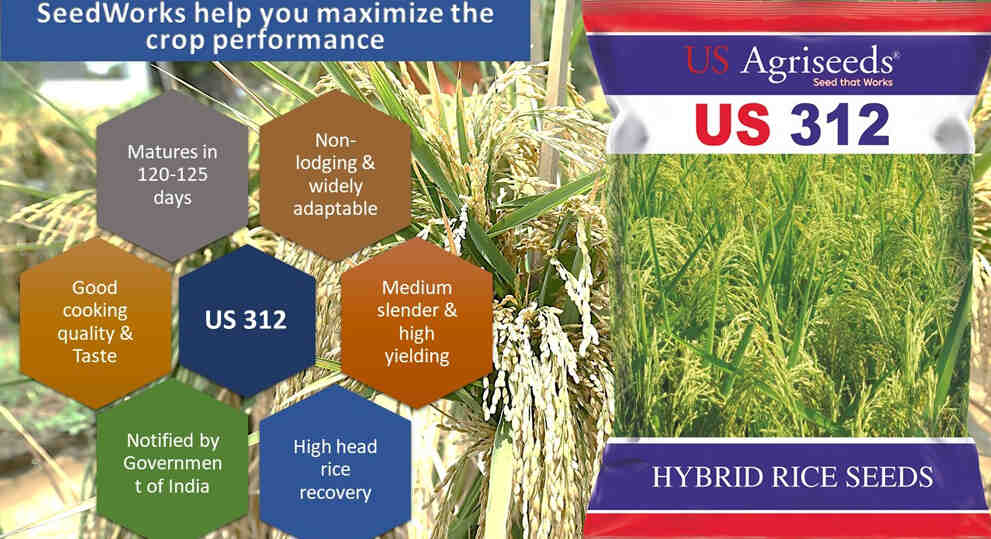India is known for its diverse agricultural landscape, which sustains the livelihood of millions of farmers. However, with increasing challenges posed by climate change, water scarcity, and growing population pressures, the agricultural sector is undergoing a transformative shift. Central to this shift is the innovation in seed technology, which plays a pivotal role in enhancing crop yields, reducing environmental impact, and promoting sustainable farming practices. This article will explore how leading seed manufacturers in India are driving sustainable farming and reshaping the future of agriculture in the country.
The Importance of Seed Innovation in Sustainable Farming
Seeds are the building blocks of agriculture. Their quality, resilience, and productivity directly impact the success of farming operations. As India strives to feed its ever-growing population while maintaining ecological balance, seed innovation has emerged as a key solution. Best seed manufacturers companies in India are at the forefront of developing seeds that are not only high-yielding but also resilient to changing environmental conditions.
In the context of sustainable farming, seeds are engineered to reduce dependence on chemical inputs like fertilizers and pesticides. These innovations contribute to improving soil health, conserving water, and reducing greenhouse gas emissions, ultimately helping farmers embrace environmentally responsible practices.
Best Seed Manufacturers in India: Meeting the Demand for Innovation
The best seed manufacturers in India are taking bold steps to address the current challenges faced by Indian agriculture. These companies focus on developing hybrid seeds, genetically modified organisms (GMOs), and drought-resistant varieties. Their expertise lies in improving seed performance in various agro-climatic zones, ensuring that farmers receive the most suitable crops for their land.
One of the key goals for these seed manufacturers is to meet the growing demand for food production in the country. India's agricultural industry faces the challenge of producing more food with fewer resources, and seed innovations are helping farmers achieve higher yields in limited spaces. From enhanced disease resistance to better nutrient uptake, these seeds are designed to help farmers achieve greater efficiency with reduced input costs.
Developing Climate-Resilient Crops
Climate change has resulted in unpredictable weather patterns, longer droughts, and increasing temperatures, all of which threaten agricultural productivity. To combat these challenges, leading seed manufacturers in India are focusing on developing climate-resilient crops. These crops are bred to withstand adverse weather conditions, such as heat, floods, and droughts, allowing farmers to continue producing food even under difficult circumstances.
By using advanced breeding techniques, companies can introduce genes that enhance drought tolerance, improve water-use efficiency, and increase resistance to extreme temperatures. As a result, farmers are able to safeguard their crops and income while minimizing the environmental impact of their farming practices.
Water Efficiency: Seeds for Scarcity
Water scarcity is one of the most significant issues facing Indian farmers today. With over 80% of the country's agricultural area being rain-fed, erratic rainfall patterns and depleting groundwater reserves are putting a strain on farming productivity. Leading seed manufacturers are addressing this challenge by developing water-efficient crops that require less irrigation and thrive in water-scarce conditions.
Drought-tolerant seeds, for example, have been engineered to thrive with reduced water supply. These crops use water more efficiently and have deep-rooted systems that can access water from lower soil levels. By adopting these varieties, farmers can continue to grow crops even during dry spells, reducing their dependency on irrigation.
Organic and Non-GMO Seed Options
As global consumer demand for organic produce increases, many Indian farmers are turning to organic farming practices. To support this transition, seed manufacturers are offering organic and non-GMO seed options that allow farmers to grow crops without relying on synthetic chemicals or genetically modified organisms. These seeds are developed through natural breeding techniques and are perfect for farmers looking to maintain soil health and promote biodiversity.
In addition to benefiting the environment, organic farming often commands higher market prices for produce. As more farmers make the switch to organic methods, seed manufacturers are evolving their product lines to cater to the growing demand for organic seeds, contributing to a more sustainable and profitable farming ecosystem.
Increasing Seed Availability and Accessibility
A significant challenge in India is the lack of access to quality seeds, especially in rural and remote areas. To overcome this barrier, seed manufacturers are working on improving the distribution networks and making seeds more accessible to farmers across the country. This is particularly important in regions where farmers have limited access to agricultural inputs or where market conditions may hinder the availability of quality seeds.
In addition to making seeds more available, companies are also focusing on educating farmers about the benefits of seed innovation. Through workshops, demonstrations, and collaborations with agricultural extension services, farmers are learning how to use modern seeds effectively to increase productivity and sustainability.
Reducing the Environmental Impact of Agriculture
One of the primary goals of seed innovation is to reduce the environmental footprint of agriculture. By developing seeds that require fewer inputs, such as pesticides, fertilizers, and herbicides, seed manufacturers are helping farmers adopt more eco-friendly practices. These innovations result in reduced chemical runoff, lower soil degradation, and a decrease in greenhouse gas emissions.
Additionally, the use of resistant seeds that are naturally immune to pests and diseases reduces the need for chemical treatments, ensuring that crops are grown in a more sustainable and environmentally responsible manner. This shift towards chemical-free farming is not only beneficial for the planet but also contributes to the long-term health of agricultural ecosystems.
Empowering Farmers through Technology
Technology plays a crucial role in seed innovation. Best seed manufacturers companies in India are leveraging digital tools and data analytics to improve the quality and performance of seeds. Advanced technologies like artificial intelligence, machine learning, and genomics are being used to analyze soil health, weather patterns, and crop performance, enabling seed manufacturers to develop more precise and effective seed varieties.
By combining traditional breeding methods with cutting-edge technology, these companies are creating seeds that are optimized for specific environments. This level of precision helps farmers achieve higher yields and better quality crops while reducing their reliance on inputs like water and fertilizers.
Partnerships and Collaborations for a Sustainable Future
Sustainable farming practices are not the responsibility of seed manufacturers alone. The entire agricultural ecosystem must work together to create lasting change. Leading companies are actively engaging in partnerships with government agencies, agricultural research institutions, NGOs, and farmer organizations to promote sustainable farming practices.
These collaborations aim to facilitate the adoption of seed innovations, provide farmers with the necessary resources and knowledge, and ensure that sustainability remains a central focus of agricultural policies. By working together, these stakeholders can create a more resilient agricultural sector that is capable of feeding future generations.
Conclusion
In conclusion, seed innovation is transforming the agricultural landscape in India, driving sustainable farming practices, and helping farmers adapt to the challenges posed by climate change, water scarcity, and the need for higher food production. The best seed manufacturers in India are at the forefront of this revolution, developing high-yielding, climate-resilient, and environmentally friendly seeds that empower farmers to grow more with less.
As India’s agricultural sector continues to evolve, these innovations will play a vital role in ensuring that farming remains a sustainable and profitable venture for future generations. By embracing seed technology and fostering collaboration between stakeholders, India can build a more sustainable and food-secure future.






Comments